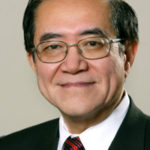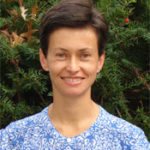
Eric D. Larson
Senior Research Engineer, Energy Systems Analysis Group Head (ESAG)
211A Andlinger Center for Energy and the Environment
609-258-4966
elarson@princeton.edu
Larson’s research intersects engineering, environmental science, economics, and public policy. His energy systems modeling and analyses aim at identifying sustainable, engineering-based solutions to major energy-related problems. His work assesses resource, economic, and environmental implications of prospective technology developments and helps inform public and private decision-making in the U.S. and elsewhere. He has published extensively on the design and analysis of advanced biomass and fossil fuel conversion technologies with CO2 capture and storage. He was part of the Princeton team contributing to the National Research Council report, America’s Energy Future: Technology and Transformation (2009). He was a Co-Convening Lead Author of the fossil energy chapter of the major international study, The Global Energy Assessment (2012). He co-led Princeton’s Net-Zero America project (2021), and he is active in the global Rapid Switch initiative established by the Andlinger Center. Larson is an Affiliated Faculty member with the High Meadows Environmental Institute and the Center for Policy Research on Energy and Environment in the School of Public and International Affairs at Princeton.

Chung Law
Robert H. Goddard Professor of Mechanical and Aerospace Engineering
Andlinger Center Associated Faculty
D325 Engineering Quad
609-258-5271
cklaw@princeton.edu

Ruby B. Lee
Forrest G. Hamrick Professor in Engineering, Emeritus
Professor of Electrical and Computer Engineering, Emeritus
B218 Engineering Quad, B-Wing
609-258-1426
rblee@princeton.edu

Sonya Legg
Senior Research Oceanographer and Lecturer
352 Geophysical Fluid Dynamics
609-452-6582
slegg@Princeton.EDU

Naomi Leonard
Edwin S. Wilsey Professor of Mechanical and Aerospace Engineering
Chair, Department of Mechanical and Aerospace Engineering
D234 Engineering Quad D-Wing
609-258-5129
naomi@princeton.edu

Simon Levin
James S. McDonnell Distinguished University Professor in Ecology and Evolutionary Biology
Andlinger Center Associated Faculty
A413 Briger Hall
609-258-6880
slevin@princeton.edu

Paul Lewis
Professor of Architecture
Andlinger Center Associated Faculty
S111B Architecture Building
609-258-3641
plewis1@princeton.edu

Ning Lin
Professor of Civil and Environmental Engineering
Andlinger Center Associated Faculty
E328 Engineering Quad
609-258-0266
nlin@princeton.edu
Natural hazards and risk assessment, stochastic modeling, wind engineering, coastal engineering, climate change impact and adaptation, and built environment and sustainability; the study of tropical cyclones and associated weather extremes (e.g., strong winds, heavy rainfall, and storm surge), how they change with climate, and how their impact on the natural and built environment can be mitigated

A. James Link
Professor of Chemical and Biological Engineering
Andlinger Center Associated Faculty
207 Hoyt Chemical Laboratory
609-258-7191
ajlink@princeton.edu

Yueh-Lin (Lynn) Loo
Theodora D. '78 and William H. Walton III '74 Professor in Engineering
Professor of Chemical and Biological Engineering
Former Director, Andlinger Center for Energy and the Environment (2016-2021)
Andlinger Center Associated Faculty
A323 Engineering Quad
609-258-9091
lloo@princeton.edu
Thin-film photovoltaics, including polymer and molecular solar cells, hybrid perovskite solar cells and transparent solar cells, printable conductive inks, processing-structure-function relationships of electrically-active plastics, macro-scale energy systems analysis of biomass-derived liquid transportation fuels.